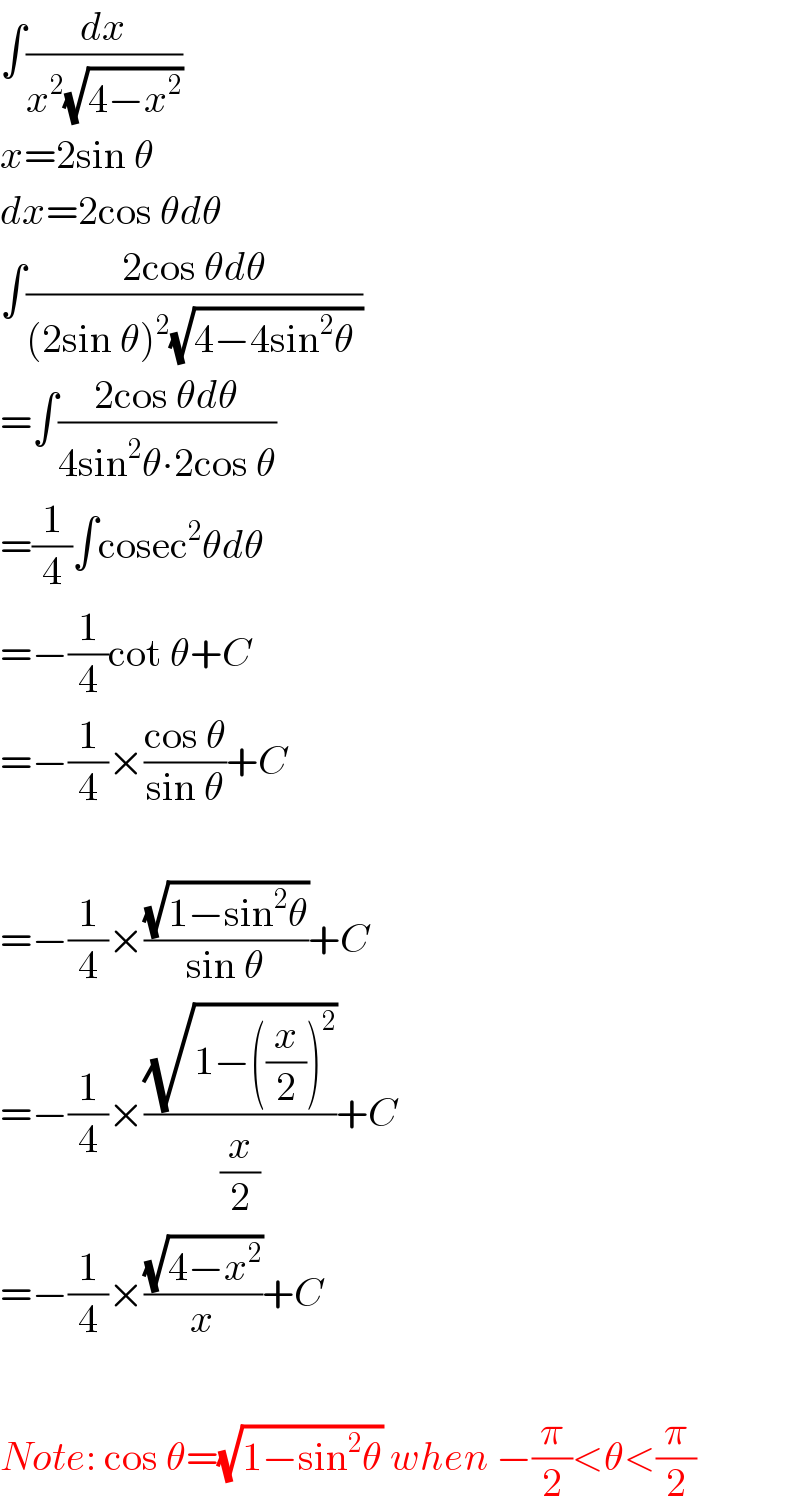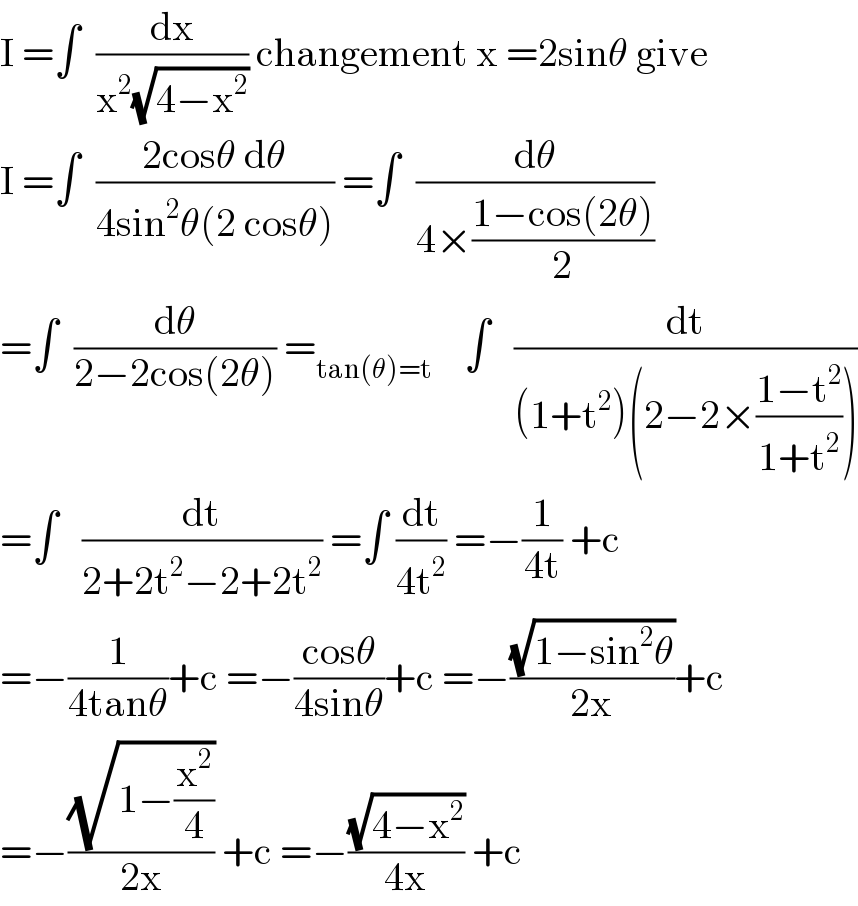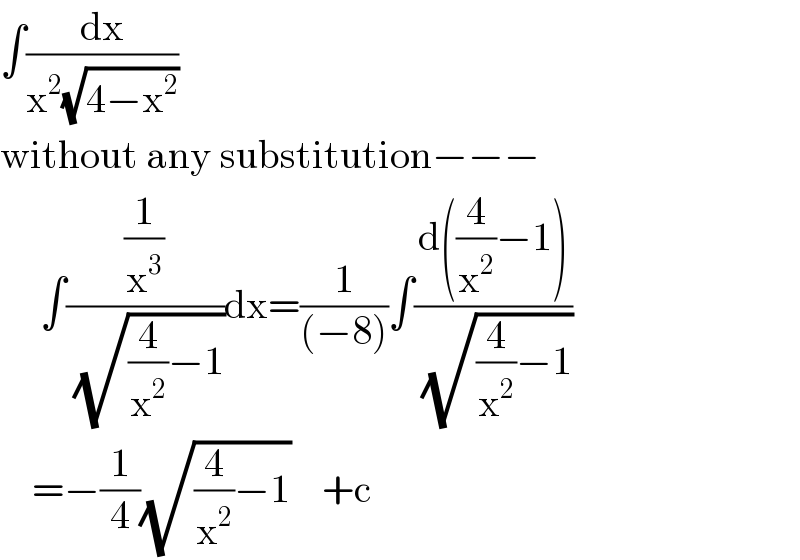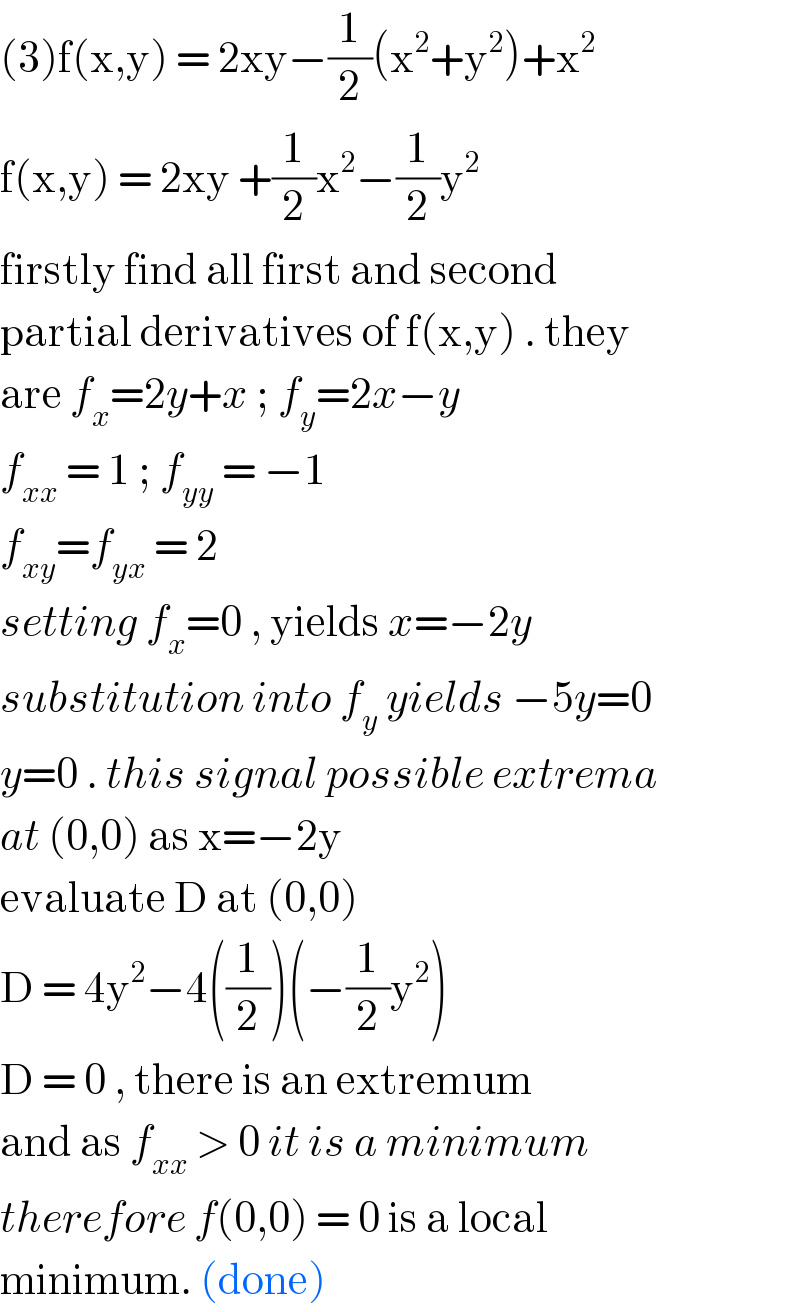
Question and Answers Forum
Question Number 95951 by me2love2math last updated on 28/May/20

Commented by me2love2math last updated on 28/May/20

Commented by prakash jain last updated on 28/May/20

Commented by me2love2math last updated on 28/May/20

Answered by abdomathmax last updated on 28/May/20

Commented by me2love2math last updated on 28/May/20

Answered by Sourav mridha last updated on 28/May/20

Answered by john santu last updated on 29/May/20
![(2) ∫_0 ^1 [∫_x ^(√x) (60x^2 y−40y^3 )dy] dx the inner bracketed integration is carried out first and evaluated as [ 30x^2 y^2 −10y^4 ]_x ^(√x) = 30x^2 (x−x^2 )−10(x^2 −x^4 ) = 30x^3 −30x^4 −10x^2 +10x^4 = 30x^3 −20x^4 −10x^2 so the integration becomes ∫_0 ^1 (30x^3 −20x^4 −10x^2 ) dx = [((30)/4)x^4 −4x^5 −((10)/3)x^3 ]_0 ^1 = ((15)/2)−4−((10)/3) = ((45−24−20)/6) = (1/6) . done](Q95973.png)
Commented by me2love2math last updated on 29/May/20

Answered by john santu last updated on 29/May/20

